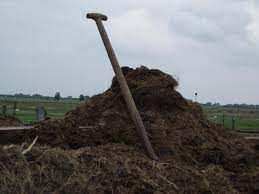No products in the cart.
The Magic of Farmyard Manure: Nature’s Gift to Your Garden
The Magic of Farmyard Manure: Nature’s Gift to Your Garden
In the realm of gardening, few things are as foundational and miraculous as good old farmyard manure. Whether you’re a seasoned gardener or just getting your hands dirty for the first time, understanding the benefits of this natural fertilizer can transform your garden into a thriving oasis. Let’s dig in and uncover the secrets of farmyard manure in all its glory.

Table of Contents
| Sr# | Headings |
|---|---|
| 1 | What is Farmyard Manure? |
| 2 | Why Use Farmyard Manure? |
| 3 | Types of Farmyard Manure |
| 4 | How to Use Farmyard Manure Effectively |
| 5 | Benefits of Farmyard Manure |
| 6 | Farmyard Manure vs. Chemical Fertilizers |
| 7 | Making Your Own Farmyard Manure |
| 8 | Precautions and Safety Tips |
| 9 | Frequently Asked Questions (FAQs) |
| 10 | Conclusion |
What is Farmyard Manure?
Farmyard -manure, often simply called “manure,” is a natural fertilizer made from decomposed animal waste and plant material. It’s been used for centuries by farmers and gardeners to enrich soil and enhance crop growth. This nutrient-rich substance is a powerhouse of organic matter that feeds the soil and promotes healthier, more vibrant plants.
Why Use Farmyard -Manure?
Imagine your garden as a hungry guest at a banquet. What it craves isn’t just food, but nourishment. Farmyard- manure is like a feast for your soil, providing essential nutrients like nitrogen, phosphorus, and potassium. These nutrients are vital for plant growth, and unlike synthetic fertilizers, manure releases them slowly over time, reducing the risk of nutrient runoff.
Types of Farmyard -Manure
Farmyard –manure can come from various sources, each with its own unique benefits. Common types include:
- Cow Manure: Rich in nitrogen and great for vegetable gardens.
- Horse Manure: Contains less weed seeds and is good for mulching.
- Chicken Manure: High in nitrogen and phosphorus but should be composted before use.
- Sheep Manure: Excellent for conditioning soil due to its high organic matter content.
How to Use Farmyard -Manure Effectively
Using farmyard -manure isn’t rocket science, but there are a few tips to keep in mind:
- Composting: Compost manure before use to reduce the risk of pathogens and improve nutrient availability.
- Application: Spread a layer of manure evenly over your garden beds before planting or as a topdressing during the growing season.
- Mixing: Blend manure with soil for raised beds or mix it into compost piles for added richness.
Benefits of Farmyard -Manure
The benefits of farmyard- manure extend far beyond basic nutrition for plants:
- Soil Conditioning: Improves soil structure and water retention.
- Microbial Activity: Boosts beneficial microbial life in the soil.
- Environmentally Friendly: Reduces reliance on chemical fertilizers, promoting sustainability.
Farmyard -Manure vs. Chemical Fertilizers
It’s a showdown between nature and chemistry! Unlike chemical fertilizers, farmyard -manure nourishes the soil without harming beneficial organisms or leaching harmful chemicals into groundwater. Plus, it’s renewable and often free if you have access to a local farm.
Making Your Own Farmyard -Manure
Ready to dive deeper into the world of composting? Making your own farmyard -manure is not only rewarding but also eco-friendly. Collect kitchen scraps, yard waste, and animal bedding, then let nature work its magic in a compost bin or pile. In a few months, you’ll have nutrient-rich compost ready to feed your garden.
Precautions and Safety Tips
While farmyard -manure is a garden superhero, it’s essential to use it responsibly:
- Composting: Always compost manure properly to reduce the risk of pathogens.
- Timing: Avoid using fresh manure on edible crops to prevent contamination.
- Quality Check: Ensure the source of manure is free from herbicides and pesticides.
Frequently Asked Questions (FAQs)
Is farmyard manure better than chemical fertilizers?
Absolutely! Farmyard manure improves soil health and fertility in the long run, unlike chemical fertilizers that can degrade soil quality over time.
Can I use farmyard manure directly on my plants?
It’s best to compost farmyard manure first to reduce the risk of burning plant roots and to ensure better nutrient availability.
How often should I apply farmyard manure?
Apply manure once or twice a year, ideally in spring and fall, to replenish soil nutrients.
Can I use any animal manure for my garden?
Yes, but some manures like chicken should be composted first to reduce the risk of pathogens.
Is farmyard manure safe for vegetable gardens?
Yes, as long as it’s composted and applied correctly, farmyard manure is excellent for vegetable gardens.
Conclusion
In the journey of gardening, farmyard manure is your steadfast companion, enriching the soil, nourishing your plants, and fostering a sustainable ecosystem. Embrace this natural wonder, and watch your garden flourish like never before!
Remember, the secret to a thriving garden lies in the magic of farmyard manure—nature’s gift that keeps on giving.
Now, armed with this knowledge, go forth and cultivate your green paradise!
Go and turn on towards organic farming to save future and thire save childs:
Elevate Plant Growth with Premium Bone Powder – Buy Now!
Organic Cow Dung Compost: Transform Your Garden Naturally
Premium Humic Acid for Healthy Plants | Enhance Soil & Boost Growth
Boost Plant Growth Naturally with Mustard Cake | Organic Fertilizer
Transform Your Garden with NPK Fertilizer | Boost Growth by 30%
Premium Perlite for Enhanced Gardening | Buy Now
Live Earthworms with Enhance Your Garden (soil health)
1 Neem Khali: Unveiling the Wonders of Nature
1Transform your garden with vermiwash-buy now
1 Premium quality Vermicompost [ केचुआ खाद ]
Follow us:



